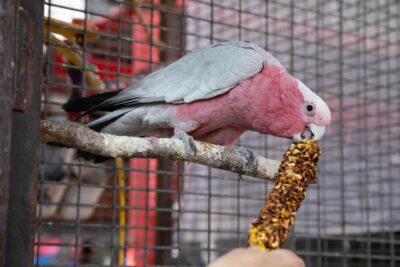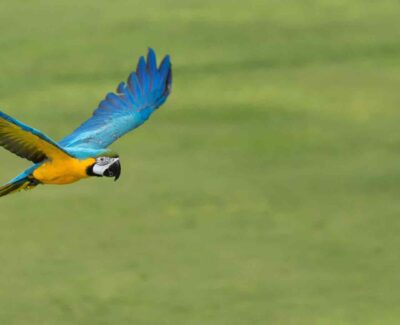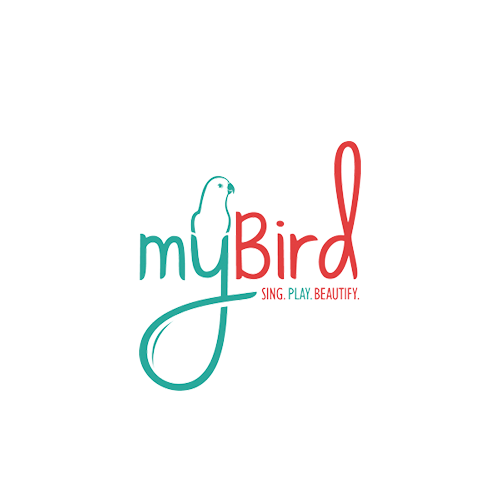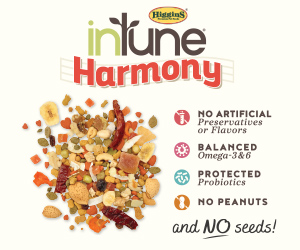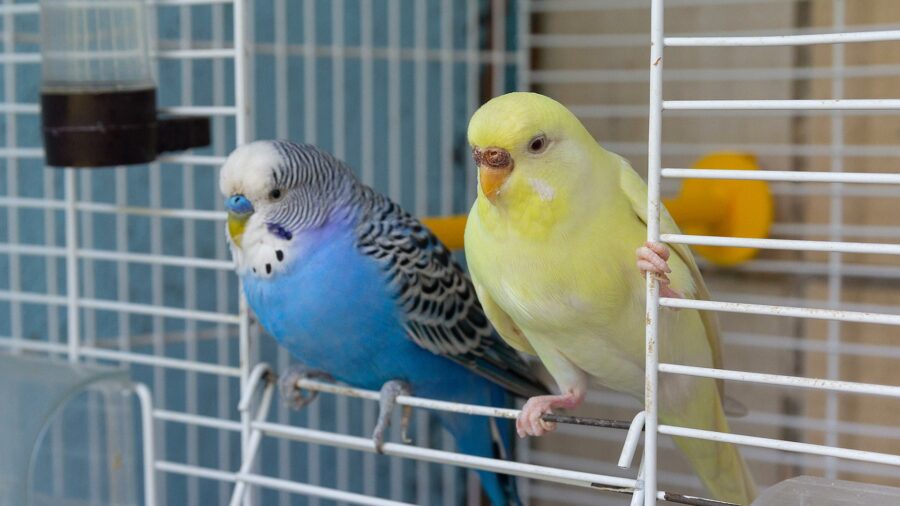
Poison Prevention for Pet Birds
Birds are sensitive to many items and substances commonly found in homes, and it is important for owners to be aware of environmental hazards that can be poisonous to pets. Something as simple as a candle burning or a bar of chocolate left unattended can quickly impact the health of your feathered friends. Here are some tips to prevent accidental poisoning and keep your pet birds happy and healthy.
Be Aware of Foods
Many types of human food are toxic to animals, and birds in particular are sensitive to a number of common foods. Caffeine and chocolate are two of the most common things that your bird should avoid coming into contact with, as they can cause heart issues, vomiting and even death. While birds are often less likely to get into chocolate than dogs are, any type of chocolate or foods containing it are hazardous to the health of your bird. Even something as small as a chocolate donut can be toxic, as it was in the case of an African Grey who died after consuming one. While not toxic to all species, avocado is another food known to be poisonous to certain species and is best avoided. Ensuring food is put away or disposed of safely, particularly in areas where your bird is left out of its cage unsupervised, can go a long way in preventing your pets from eating something that could harm them.
Store Cleaning Products Safely
Household chemicals like cleaning products and insecticides can be incredibly dangerous if your bird manages to get into them and are best kept in a safe place well away from your bird’s environment. Items like batteries or paint can also contain lead, which is poisonous to birds, making it important for owners to ensure their birds do not come into contact with them. Storing these items securely and out of sight can deter even the most curious bird from accidentally being exposed to toxic chemicals.
Keep an Eye on Plants
Plants and other green elements are great additions to a space, but if your home includes birds, there are certain plants and flowers that can actually be hazardous to their health. Many birds are drawn to eating plants, whether for dietary reasons or out of curiosity, and it is important for owners to make sure the plants in their home will not make their birds sick. Lilies, azaleas and ivy are three of the most common types of plants that are toxic to birds, and particularly in homes where birds are often left out of their cage regularly, it is important to remove or block access to these plants.
Monitor Fumes
Birds have sensitive respiratory systems, and many owners are surprised that the scent of a candle or even a nonstick pan can be hazardous to birds. Nonstick cookware, when heated too high, and self-cleaning ovens, release a colorless odorless toxin that, while not apparent to humans, can be poisonous to birds. By investing in ceramic or cast-iron cookware, owners can enjoy cooking without putting their pets at risk. Similarly, Febreze, wax candles, and essential oils also release airborne toxins that can negatively impact your bird’s respiratory health. If you’re not ready to give up candles entirely, many soy candles are safe for use around birds, and specially designed pet-safe candles are also a great alternative to paraffin-based candles.
Don’t Hesitate to Consult a Vet
While prevention is key, sometimes even the most vigilant bird owners might find their pet has ingested or been exposed to a toxic substance. If you suspect your bird has come into contact with a material hazardous to their health, don’t delay in seeking veterinary care immediately. Even if your pet is not outwardly showing symptoms of toxin exposure, by quickly enlisting the help of a professional you can ensure that any potential negative health effects are mitigated.
At myBird, we know how much joy birds can bring and seek to give bird lovers the knowledge they need to best care for their pets. Follow us on Facebook and Instagram, and be sure to check out our other posts about birds or take our quiz to see which types of birds may be right for you!
